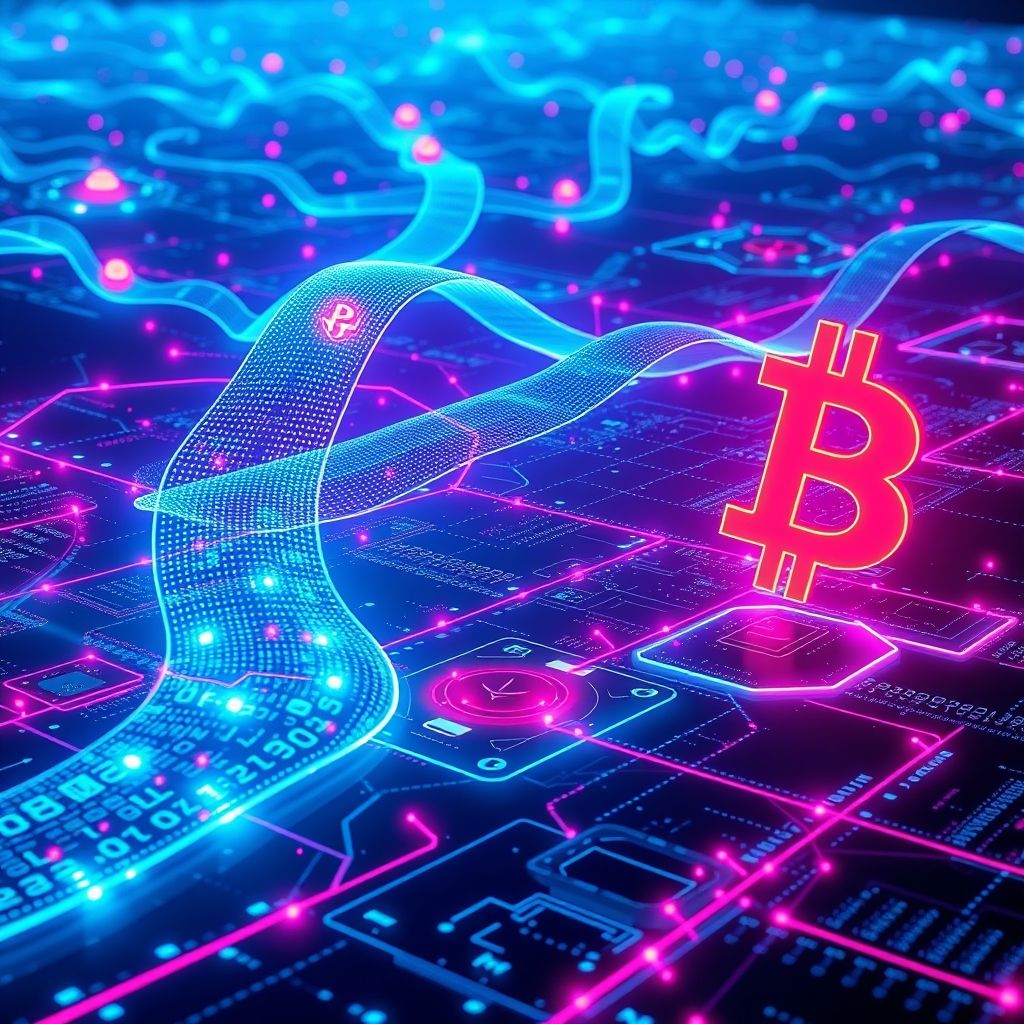How do smart contracts interact with cryptocurrencies?
How Do Smart Contracts Interact with Cryptocurrencies?
Imagine a world where contracts are executed automatically, triggered by coded conditions, without a middleman or lawyer. Sounds futuristic, right? Well, that’s precisely what smart contracts bring to the table in the crypto universe. They’re revolutionizing how we think about digital finance, making transactions more seamless, transparent, and secure.

Unlocking the Power of Automation in Digital Finance
Smart contracts are self-executing agreements stored on blockchain networks. Think of them as digital vending machines: you insert crypto assets, and if certain conditions are met—say, a payment clears—they automatically dispense a product or service. No human intervention needed. This automation reduces errors, cuts costs, and speeds up processes, turning traditional contracts into something that feels more like a real-time app than a legal paper.
How They Actually Work with Cryptocurrencies
Cryptocurrencies act as the fuel that powers smart contracts. When you deploy a smart contract on, for example, Ethereum—a major blockchain platform—you’re essentially creating rules that are payable in ETH or any other supported token. Transactions triggering a smart contract often involve transferring tokens into or out of the contract’s address. Once the set conditions are fulfilled, the contract executes its functions, whether that’s releasing funds, updating records, or engaging in complex trading actions.
For example, imagine a decentralized insurance protocol. When a flight gets canceled, an oracle (a kind of external data feed) confirms the event. The smart contract then automatically releases the payout to the traveler’s wallet, all happening without a single claim form or middleman. That’s plain efficiency in action.
The Appeal for the Financial Sector
In the Web3 financial realm, smart contracts are opening new doors for diverse assets—foreign exchange, stocks, commodities, options, even indices—bringing the benefits of decentralization and automation to every corner of trading. They make cross-border transactions instant and transparent, reduce counterparty risk, and lower reliance on traditional banking routes.
Take forex trading, for example. Imagine a smart contract that automatically executes trades when specific price signals appear. That’s not just faster; it’s more precise and backed by blockchain’s immutable ledger. Traders get real-time transparency, and institutions can operate with reduced operational costs.
Navigating Advantages and Caveats
The upside? By programming these contracts correctly, you lock in rules and reduce human error. A smart contract can handle complex multi-asset portfolios, optimize trade execution, and even manage collateral for leverage trading—all while maintaining an audit trail that’s accessible, tamper-proof, and traceable.
But don’t forget the pitfalls. Coding errors or overlooked conditions can lead to mass vulnerabilities—see the infamous “hack” incidents where contracts were exploited. Leverage trading, while lucrative, amplifies risk—careful risk management and thorough audits are must-haves. Think of it like riding a high-speed rollercoaster: exhilarating but not without safety gear.
The Future of DeFi and Smart Contract Trading
Decentralized finance isn’t just a buzzword; it’s a movement shifting how assets are exchanged, stored, and invested. Smart contracts are the backbone of this shift—making transactions trustless, borderless, and programmable. With AI-driven algorithms increasingly integrating into these contracts, we’re heading toward a new era of adaptive, intelligent trading systems.
Yet, challenges remain—scalability issues, regulatory uncertainty, and the need for heightened security protocols demand attention. As these hurdles get tackled, the landscape is poised for rapid evolution, including more user-friendly interfaces and more sophisticated asset management tools.
A Glimpse into Whats Next
Looking ahead, expect smart contracts to become even smarter—automatic adaptation via AI, enhanced security measures, and broader adoption across traditional markets. Imagine a future where your crypto portfolio rebalances itself based on market signals, all through a transparent, tamper-proof contract. That’s not just a pipe dream; it’s the horizon we’re racing toward.
Smart contracts and cryptocurrencies together are shaping the new financial frontier—fast, secure, and decentralized. As these innovations become more accessible and robust, they’ll empower traders and institutions alike to unlock more opportunities while riding the wave of a transforming financial ecosystem. Welcome to the era where code meets commerce—your gateway to smarter, safer, and more efficient finance.